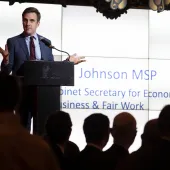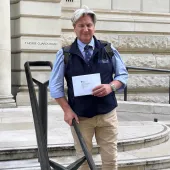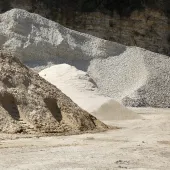BAA attacks Treasury tactics
Association hits back at HM Treasury of attempts to discredit legal challenge to Aggregates Levy
THE British Aggregates Association (BAA) says HM Treasury claims that the association is unrepresentative of the industry is an attempt to discredit its 12-year legal challenge to the Aggregates Levy. According the BAA, the Treasury’s allegation is based on the fact that the association is not supported in its legal challenge by the Minerals Products Association and that the MPA claims to represent a larger membership with a much greater tonnage than BAA members.
The BAA says this is not the first time that the Treasury has used such tactics, having made similar claims in cases which they lost in the EU and in Scotland. During meetings that were held at the Treasury last November, officials refused to let BAA members attend alongside MPA members.
Ever since it first lodged its challenge to the Levy in 2002, the BAA says it has fought its case alone, but that the Treasury is greatly mistaken about the size of the relative associations and how representative they each are of the quarry industry. According to the BAA, while the MPA now represents a diverse range of organizations across the minerals-related sector, the BAA is strongly focused on the interests of primary aggregate producers. It says independent marketing consultancy BDS Marketing has reported that, on a like-for-like basis, the BAA now has more construction aggregate producers than the MPA.
BAA executive officer Richard Bird commented: ‘The BAA has always avoided an argument over numbers as there is little point in comparing the two trade associations. Of course the tonnage of BAA members is much smaller, but the Treasury fails to acknowledge that 70% of UK aggregates are produced by four foreign-owned cement companies.’
He continued: ‘HM Treasury refuses to accept that the vast majority of aggregates companies are opposed to the levy. Many operators are in both the BAA and the MPA, and a number of MPA members have actually helped with the BAA legal fund. Indeed, most operating companies, including the majors, have lodged precautionary claims to recover their Levy if the BAA wins its case.’
The BAA says that, in its present form, the Levy has been shorn of all its ‘environmental’ credentials and the only justification now left to the Treasury is that that continuing to collect it ‘is in the public interest as it generates some £250 million per year’. This, it says, conveniently ignores the Levy’s alleged revenue-neutral status and the fact that the public sector is by far the biggest user of aggregates.
‘Whatever the final outcome, this episode provides a salutary lesson as to what can happen when an industry becomes divided,’ said Mr Bird. ‘In an increasingly taxed and regulated world, we must ensure that this does not happen again.’









